
Banner
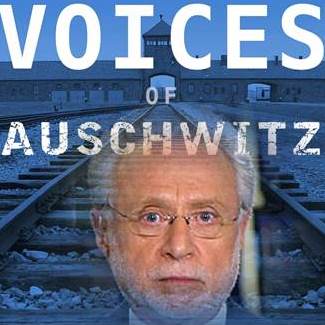
70th commemoration of Auschwitz liberation
ANT KATZ
“Germany’s Confrontation with the Holocaust” will run at the Cape Town Holocaust Centre from 27 January to 27 March and will be open from Sundays to Thursdays between 10am and 5pm – and on Friday from 10am to 2pm.
The exhibition is themed on what the world can learn from the way Germany confronted its Nazi past? It will also tour in Durban and Johannesburg.
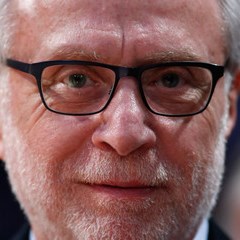 The CNN Special
The CNN Special
CNN’s Special Report: “Voices of Auschwitz” hosted by Wolf Blitzer (Pictured RIGHT) will be re-screened SUNDAY – SEE DETAILS. The one-hour special report, airing on the 70th anniversary of the camp’s liberation, will look back at the atrocities committed at Auschwitz through the eyes of those imprisoned there more than 70 years ago.
Four survivors tell their stories of torture, loss, hopelessness and, finally, liberation and survival. Read more about the CNN documentary below.
The Cape Town Expo
Richard Freedman, Director of the SA Holocaust and Genocide Foundation, said: “For South Africa, the relevance of this exhibition lies in the ongoing challenges faced by our own society in dealing with the legacy of the iniquities of a racial state.
“The work of the SA Holocaust & Genocide Foundation uses the platform of Holocaust history to engage South African society in the pressing issues of today. The process which Germany has followed since the end of the war may encourage us to continue with the processes of reconciliation which manifested so tangibly in the South African Truth and Reconciliation Commission, established in the first post-apartheid years.
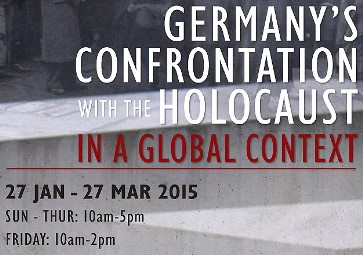
RIGHT: an extract from the Cape poster – see below in full
“But this public process was not intended as an end in itself,” explains Freedman.
“As is evidenced in this exhibition, the coming to terms with the past needs constant vigilance and commitment. It is hoped that as this exhibition travels around South Africa it will help stimulate the reflection, conversation and action so essential for the healing of a deeply wounded society.”
To coincide with the 70th Anniversary of the Red Army liberated the camp, where more than a million people were killed – the exhibition opens simultaneously at Cape Town Holocaust Centre, England’s National Holocaust Centre and at the University of Leeds. The South African exhibition will move to the Holocaust centres in Durban and Johannesburg later in the year.
Professor Stuart Taberner, Professor of Contemporary German Literature, Culture and Society at Leeds, is leading the international project, which is the culmination of a year-long public engagement programme funded by the Arts and Humanities Research Council.
How Germans have faced up to it
He said: “The exhibition looks at the way Germans have tried, often with admirable honesty but sometimes less openly, to face up to the Holocaust and the way other countries deal with their own difficult pasts – and difficult presents.
“For North Americans and Europeans, these include slavery and colonialism, such as Britain’s less than glorious legacy of decolonialisation in Kenya or rule in Ireland. In South Africa, there is apartheid, and before that the long history of inter-communal conflict and oppression.”
Professor Taberner added: “However loudly we recite the lesson of the Holocaust – ‘never again!’ – we seem unable to prevent new mass killings in Kosovo, Rwanda, Darfur, or, right now, Iraq and Syria. Intolerance of others underlies these atrocities, just as it drives radical Islamists to gun down cartoonists in Paris.
“The exhibition is intended as a tribute to the victims, and as an act of memorialisation. In showing how the Holocaust has been remembered in Germany, the perpetrator nation, however, we hope also to focus attention on the hatred that is still all too common today.”
Additional activity in Cape Town
In addition to the exhibition and a theatrical performance, a leading member of South Africa’s Truth and Reconciliation Commission is among panellists for a public lecture and discussion at the University of Leeds as part of an international conference on Holocaust memory.
Pumla Gobodo-Madikizela was joined by fellow author Eva Hoffman and academics Marianne Hirsch and Leo Spitzer at the event on 26 January.
The touring exhibition will also be displayed in Nottingham, Coventry, Aberystwyth, Chester, Birmingham, Newcastle and Durham, as well as Cork, Copenhagen and the University of Notre Dame in Indiana, USA.
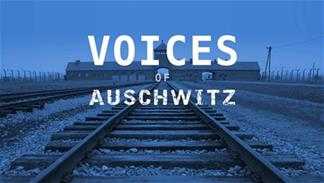 Other key partners in the project include the Holocaust Survivors Friendship Association, the University of the Free State, Leeds City Council and Nottingham Trent University.
Other key partners in the project include the Holocaust Survivors Friendship Association, the University of the Free State, Leeds City Council and Nottingham Trent University.
More on CNN Doccie
Eva Kor arrived at Auschwitz with her mother and twin sister in 1944, when she was just 10-years old. That day on the selection platform was the last time she would ever see her mother again. Eva’s mother was sent directly to the gas chamber. For the next nine months,
Eva and her sister Miriam were housed in a rat-infested bunk with 300 other children and subjected to medical experiments daily. Despite the daily torture, Eva was determined to survive, telling CNN’s Wolf Blitzer: “I was not going to perish here in Auschwitz.” When liberation finally came on January 27, 1945, Eva and Miriam were at the front of the line as the children were led out of Auschwitz.
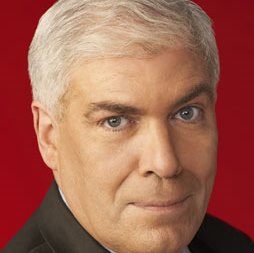
RIGHT: In an unrelated event last week, 34-year Veteran CNN anchor JIM CLANCY pictured) resigned after a series of anti-Israel tweets in which he mocked pro-Israel tweeters discussing the Charlie Hebdo massacre
Renee Firestone survived by using her skills as an aspiring designer to throw off the Nazis.
Martin Greenfield survived the bitter cold of the death march by wearing layers of discarded Gestapo uniform shirts he obtained while working as a tailor in Auschwitz.
Anita Lasker-Wallfisch survived by playing the cello in a makeshift orchestra at Auschwitz, and went on to become a founding member of the English Chamber Orchestra.
 Blitzer’s own ties
Blitzer’s own ties
Blitzer has his own ties to the concentration camp. Last year, while exploring his own roots, he discovered that his paternal grandparents died at Auschwitz.
Blitzer also sat down with Academy Award-winning director and producer Steven Spielberg to reflect on the stories of these survivors and discuss the importance of ensuring these lives are never forgotten. Spielberg directed the historical drama Schindler’s List, and started the University of Southern California Shoah Foundation to gather video testimonials of survivors and witnesses of the Holocaust.
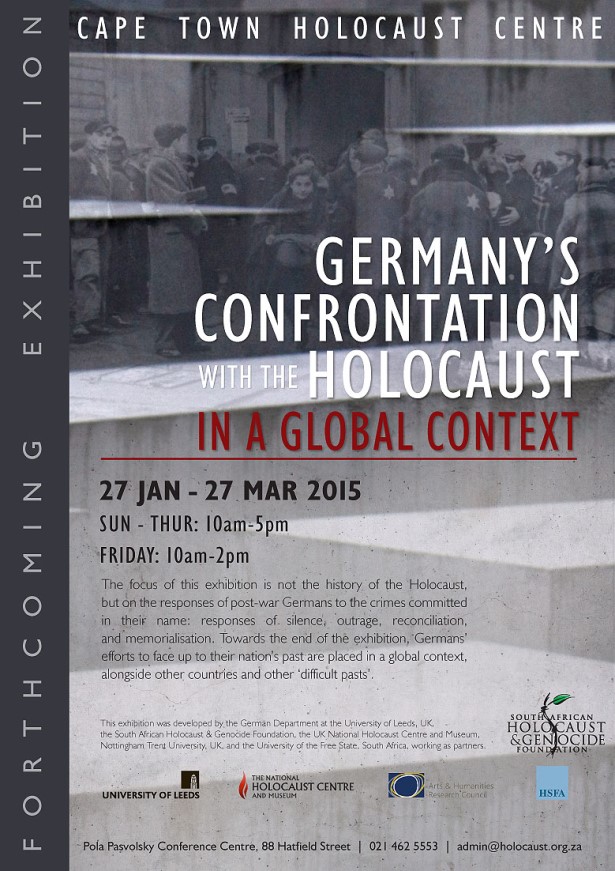
The poster for the SA exhibition





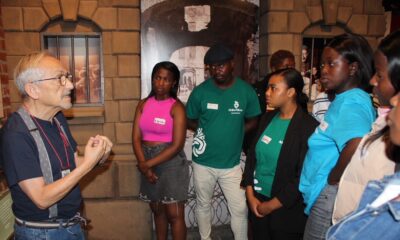

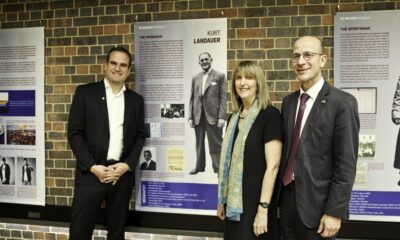



Mordechai
January 28, 2015 at 1:39 am
‘Ant, and this man Wolf Blitzer works for the Anti Israel AND PRO Palestinian CNN. In fact he is a senior correspondent for the Anti Israel network. It would have been appropriate if your introduction mentioned this as it is important
\n
\n
Hi M: This is your opinion, which you are welcome to express. It would NOT have been appropriate for us to have made such a judgemental call whether it was on AlJazeera, RT, CNN or any other source. Our job as journalists is not to pronounce judgements so much as to present factsimpartially -ED
\n
\n
\n
‘
Mordechai
January 29, 2015 at 10:27 pm
‘Hi Ed, with all due respect I disagree with you. Jewish sell outs need to be exposed for who and what they are. Any Jew who works for an organization which is Anti Israel and pro countries and organizations who want to destroy the Jewish state of Israel need to be exposed. Rather don’t do an article on the Wolf Blitzer’.s of the world, after all there are many well known Jewish hero’s who had parents living in Europe during the Holocaust. Why on earth feature Wolf Blitzer’s store. This man sits opposite and interviews those leaders who are enemies of the Jewish people and your publication features him in an article…why was that necessary ?’